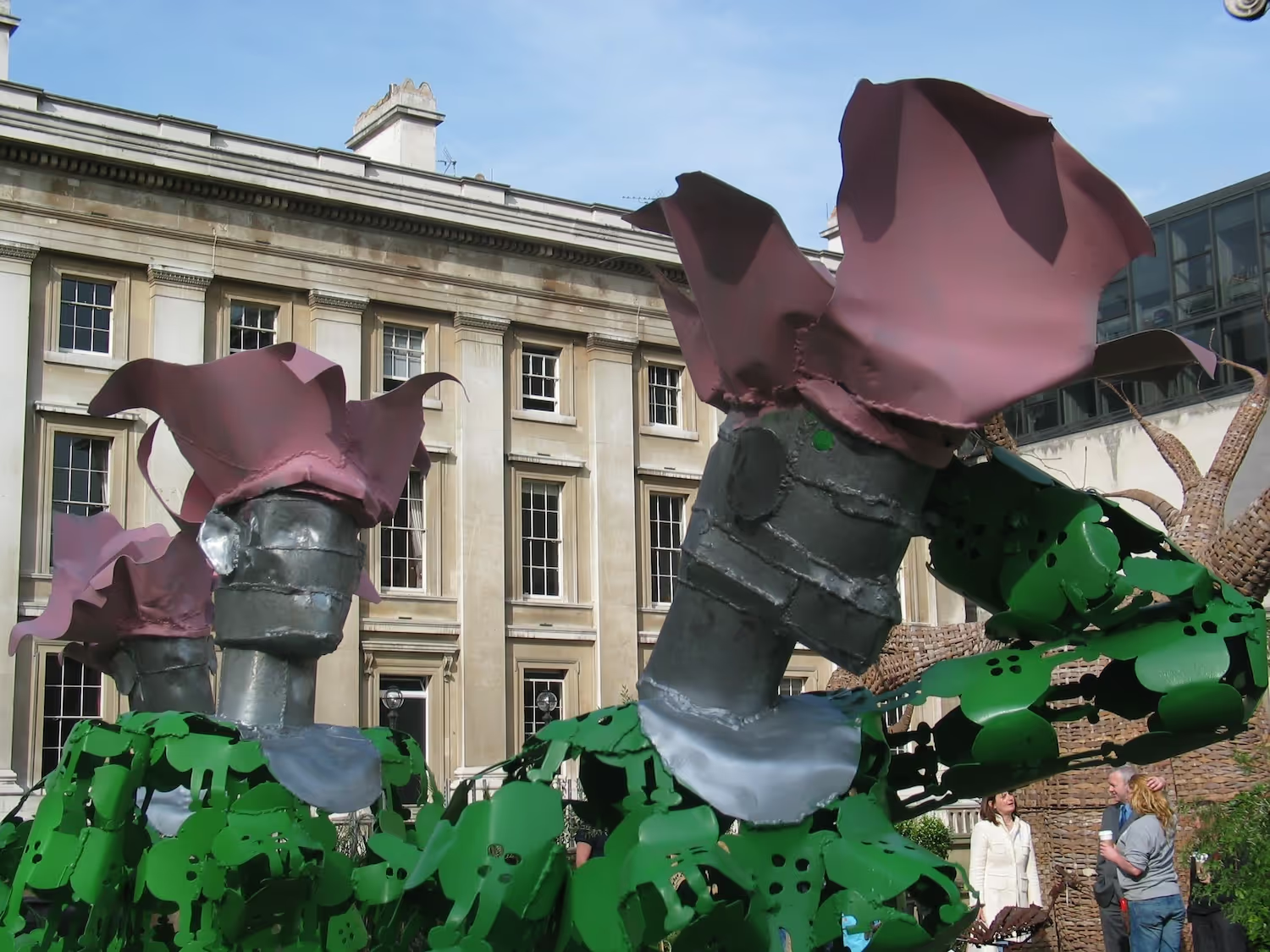
Asoebi
Materials: Powder-coated steel and water feature
2005
Across West Africa, aso ebi—literally “family cloth”—is chosen for weddings, festivals, and rites so that many bodies announce one belonging. In this work, Sokari Douglas Camp, the Nigerian sculptor of international renown, forged that ceremonial textile in steel, translating softness into structure and turning pattern into presence.
A chorus of women stood at the threshold, their coordinated dress recast in metal, greeting you as hosts do and inviting you to cross from spectator to participant. Douglas Camp’s practice draws on Kalabari heritage and on the Black Atlantic’s routes of exchange, often using public space and monumental scale to address memory, ecology, and justice.
She has created works such as Battle Bus, commemorating Ken Saro-Wiwa, and All the World Is Now Richer, which reflected on enslavement and repair. Her sculptures reside in major collections, including the British Museum, the Smithsonian’s National Museum of African Art, and the Setagaya Art Museum.
Installed at the fair’s entrance for our tenth anniversary, Asoebi honored the women who hold ceremonies together—the quiet infrastructure of arrival. Here, shared cloth became civic welcome: a social fabric made visible, an embrace in metal that gathers us into community with grace, strength, humor, and enduring collective pride.